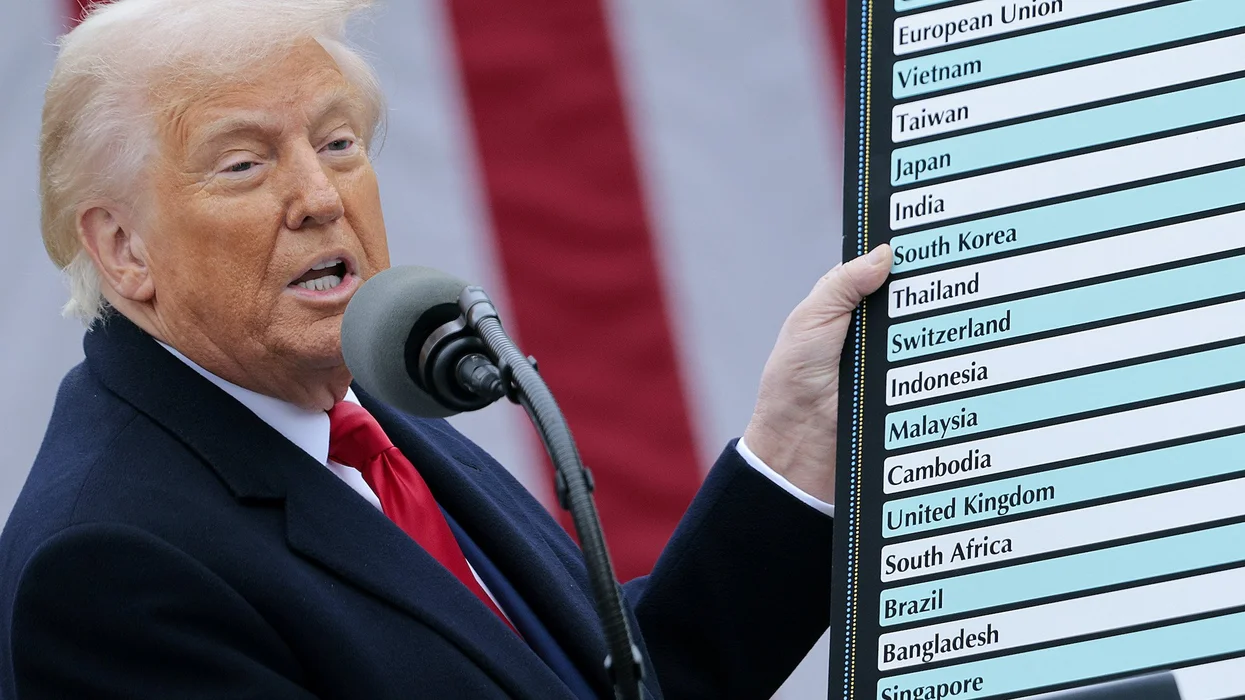
© 2025 Blaze Media LLC. All rights reserved.
On free-market economics and democracy.
A couple of books have piqued our interest recently.
 First, over at Yahoo Finance, Jeff Macke praises Peter Schiff's updated and now illustrated edition of his economic primer, "How an Economy Grows and Why It Crashes." Macke notes:
First, over at Yahoo Finance, Jeff Macke praises Peter Schiff's updated and now illustrated edition of his economic primer, "How an Economy Grows and Why It Crashes." Macke notes:
"Peter Schiff of Euro Pacific Capital has written a book that teaches basic economics in a way that kids will understand and parents can enjoy. Seriously. The polarizing Schiff and his brother Andrew have updated their book How an Economy Grows and Why It Crashes for the holidays with illustrations and anecdotes that explain the basic tensions of economic policy and behaviors without completely burying the points in ham-fisted ideologically rooted didacticism."
Schiff, an outspoken free-marketeer and investment advisor, in addition to adding illustrations meant to spice up this collector's edition of his book for children, has added new chapters on the Federal Reserve's QE policy and European debt crisis.

Next, in the Washington Post, George Will vouched for a book that Randy Barnett also recommended as a "Penetrating analysis of the problem with majoritarianism." The title? Ilya Somin's "Democracy and Political Ignorance: Why Smaller Government Is Smarter."
Will sums up the thrust of Somin's book as follows:
Political ignorance, Somin argues, strengthens the case for judicial review by weakening the supposed “countermajoritarian difficulty” with it. If much of the electorate is unaware of the substance or even existence of policies adopted by the sprawling regulatory state, the policies’ democratic pedigrees are weak. Hence Somin’s suggestion that the extension of government’s reach “undercuts democracy more than it furthers it.”
In other words, if government did less, people would care about its inner workings more, as in the 19th century when as Will notes "voters’ information burdens were much lighter." In closing, Will reiterates this point:
An engaged judiciary that enforced the Framers’ idea of government’s “few and defined” enumerated powers (Madison, Federalist 45), leaving decisions to markets and civil society, would, Somin thinks, make the “will of the people” more meaningful by reducing voters’ knowledge burdens. Somin’s evidence and arguments usefully dilute the unwholesome democratic sentimentality and romanticism that encourage government’s pretensions, ambitions and failures.
A couple books that might complement Somin's work include H.L. Mencken's caustic and laugh-out-loud funny even today "Notes on Democracy", and UNLV Economics Professor and Distinguished Fellow with the Ludwig von Mises Institute, Hans-Herman Hoppe's rigorous critique of democratic government "Democracy: The God that Failed."
Want to leave a tip?
We answer to you. Help keep our content free of advertisers and big tech censorship by leaving a tip today.
Want to join the conversation?
Already a subscriber?
Ben Weingarten is a writer, commentator, and editor at large at RealClearInvestigations. He is a senior contributor at the Federalist and writes columns for Newsweek and the Epoch Times.
Ben Weingarten
Ben Weingarten is a writer, commentator, and editor at large at RealClearInvestigations. He is a senior contributor at the Federalist and writes columns for Newsweek and the Epoch Times.
more stories
Sign up for the Blaze newsletter
By signing up, you agree to our Privacy Policy and Terms of Use, and agree to receive content that may sometimes include advertisements. You may opt out at any time.
Related Content
© 2025 Blaze Media LLC. All rights reserved.
Get the stories that matter most delivered directly to your inbox.
By signing up, you agree to our Privacy Policy and Terms of Use, and agree to receive content that may sometimes include advertisements. You may opt out at any time.





